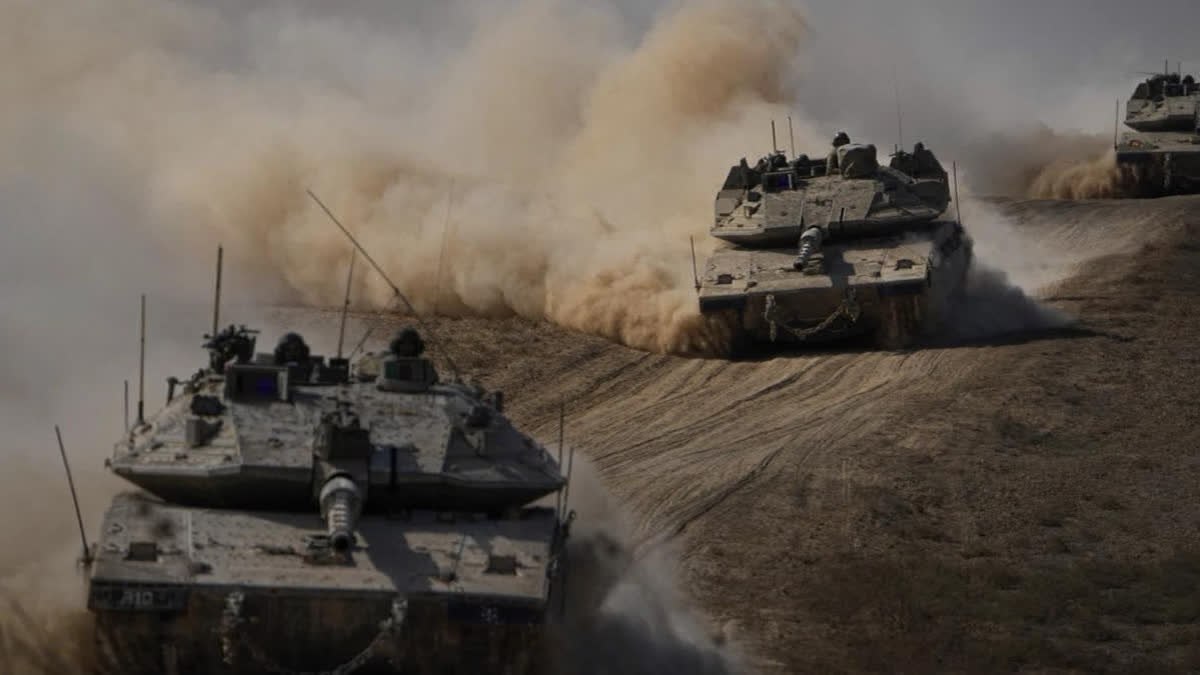New Delhi: One man’s terrorist is another man’s freedom fighter. So goes the saying. The adage cannot be more pertinent than today when a war is going on between Israel and Hamas that has claimed over 4,000 lives on both sides so far.
What has also become all the more important now is to revisit the Comprehensive Convention on International Terrorism (CCIT) that was introduced by India in the UN way back in 1996. The treaty intends to criminalise all forms of international terrorism and deny terrorists, their financiers and supporters access to funds, arms, and safe havens. Having been the victim of cross-border terrorism for long, India realised the threat it poses to international peace and security long before other major world powers.
However, the fact of the matter is the CCIT has been hanging fire all this while. The problem? Countries and international organisations have not been able to come on the same page about the definition of terrorism.
The definition of the crime of terrorism which has been on the negotiating table of the Comprehensive Convention since 2002 reads as follows: “Any person commits an offence within the meaning of this Convention if that person, by any means, unlawfully and intentionally, causes: death or serious bodily injury to any person; or serious damage to public or private property, including a place of public use, a State or government facility, a public transportation system, an infrastructure facility or the environment; or
damage to property, places, facilities, or systems resulting or likely to result in major economic loss, when the purpose of the conduct, by its nature or context, is to intimidate a population, or to compel a government or an international organisation to do or abstain from doing any act.”
This definition is not controversial in itself. But the deadlock in the negotiations arises instead from the opposing views on whether such a definition would be applicable to the armed forces of a state and to self-determination movements.
The US wanted the draft to exclude acts committed by military forces of states during peacetime. Washington is worried about the application of the CCIT to its own military forces especially with regard to interventions in Afghanistan and Iraq.
And here comes the catch in the current context. The Organisation of Islamic Cooperation (OIC) wants exclusion of national liberation movements, especially in the context of Israel-Palestinian conflict. It was argued that there is a need to distinguish acts of terrorism from movements for self-determination so that legitimate movements are not labeled as criminal acts of terrorism.
While Israel and Western powers describe Hamas as a terrorist organization, pro-Palestine powers describe it as an armed militant group that is engaged in a liberation war. It is also pertinent to note that while the Palestinian Authority that is in power in the West Bank is for a state solution, Hamas is bent on total annihilation of Israel and restoration of the Palestine nation on its original historic site.
Hamas, which holds power in Gaza where the war is being fought, was founded in 1987 during the First Intifada (Palestinian uprising). It has its origins in the Palestinian territories and was formed as a response to the Israeli occupation. As an Islamist organisation, Hamas has a broader social and political agenda. It combines political activism, social services, and military activities. Hamas’s charter calls for the establishment of an Islamic state in historic Palestine, but it has shown some flexibility in its approach and has participated in Palestinian elections.
When his Israeli counterpart Benjamin Netanyahu made a telephonic call on October 10 following Hamas’ deadly attack on the Jewish nation on October 7, Prime Minister Narendra Modi said that “India strongly and unequivocally condemns terrorism in all its forms and manifestations”. But the fact of the matter is that India continues to support the two-state solution for the Israel-Palestine conflict.
This became evident again when External Affairs Ministry spokesperson Arindam Bagchi, in a regular media briefing two days later, said: “Our policy in this regard has been long-standing and consistent. India has always advocated the resumption of direct negotiations towards establishing a sovereign, independent, and viable state of Palestine, living within secure and recognised borders side by side at peace with Israel. And I think that position remains the same.”
It is worth mentioning here that Modi is, in fact, the first Indian Prime Minister to make two separate standalone visits to Israel and the West Bank.
India has been pushing for the CCIT consistently, particularly in the wake of the 2008 Mumbai terror attacks. Modi, once again raised the topic in his address at the 69th Session of the UN General Assembly (UNGA) held in September 2014. India’s then Permanent Representative at the UNGA, Syed Akbaruddin, had further pressed for the adoption of CCIT following the July 2016 terror attack on the Holey Artisan Bakery in Dhaka, Bangladesh. The same year, in her speech at the UNGA, then External Affairs Minister Sushma Swaraj had appealed to the global community for the early adoption of the CCIT.
However, till date, the CCIT continues to be in the backburner – waiting for the definition of the word “terrorism”!



